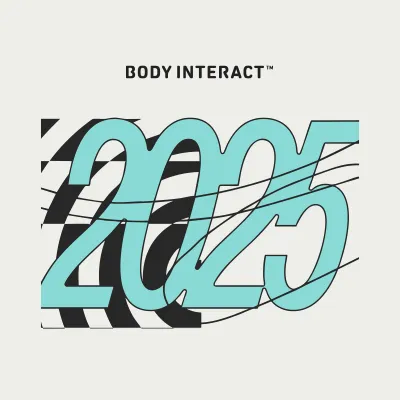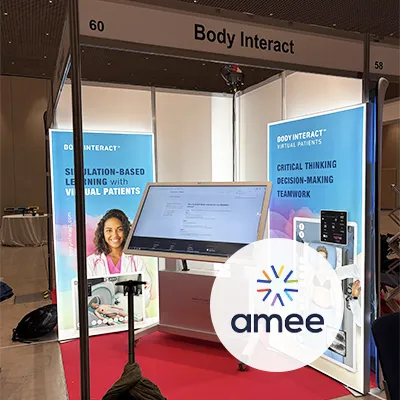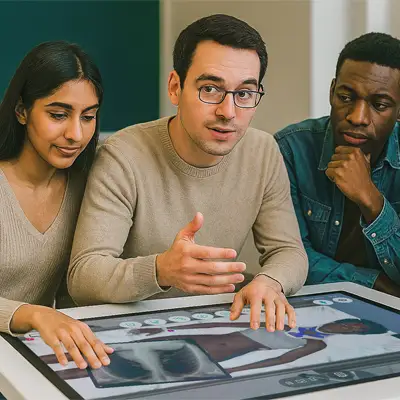During the month of August (2020), the Asian Medical Students Association – India (AMSA-India), in partnership with Body Interact, hosted a three week online event titled: Virtual Patient Challenge (VPC) 2020.
AMSA-India wanted to offer its members an opportunity to remain motivated during the COVID-19 pandemic and to promote cultural exchange and the development of new friendships within the association.
Additionally, it also served as the means to select the final 25 teams that would compete in solving the Body Interact clinical scenarios using virtual patients in the final deciding stage of the online event.
The list of activities promoted through the event included here:
- Med Decathlon (medical quiz)
- Artificial Intelligence in Healthcare (workshop)
- Clinical communication skills for Global Medical Citizen’s (workshop)
- Online surgical skills training (workshop)
- Skills mastering (seminar)
- Team building activities
- Virtual Patient Challenge (competition)
The role of the facilitator
In order to ensure all teams maintained access to the Body Interact simulator with a stable internet connection, AMSA-India created the position of the facilitator for each team. The facilitator managed the internal organization and communication for their team, with a key function of their role to also manage access into Body Interact and managing the click commands within the software, on behalf of the team during the clinical scenarios and according to the team decisions.
All 25 facilitators received training from the Body Interact team on how to use the virtual patient simulator, the scoring system and instruction on what to do on the day of the competition.

The success of each team was dependent on the facilitator’s commitment to the task, their listening skills and implementing their team’s decisions. All the team facilitators mentioned how much they enjoyed the competition even with the workload and expectations of their teammates.
The facilitator from team 16 mentioned he “felt the adrenaline of playing a real-life scenario” and the facilitator from team 4 commentated that he “had a lot of fun working through the decisions and discussions of the team”.
The facilitator of team 14, acknowledged that as facilitators they all have witnessed how teams “need to think in the same direction, put their knowledge into practice and coordinate all the decisions together, in order to save the patient and manage his condition”.


Become better physicians with virtual patients
With the current Covid19 situation, the Virtual Patient Challenge participants highlighted that the virtual patients are the closest they can get to real patients and clinical practice.
The use of simulations is a growing education strategy worldwide, with educators and institutions always looking for the best tools to compliment their course content.
Many of the participants expressed that benefits of using Body interact in their medical education include:
- Learn how to work as a team;
- Learn how to manage a patient;
- Decide what to do next and understand how their actions impact the patient health condition;
- Develop their critical thinking and decision-making skills;
- Learn different diagnostic techniques;
- Learn how to act under pressure and to manage emergency situations;
- Learn how to stabilize a patient;
- Focus on the diagnostic of the patient but not forgetting the treatment and the continuous management of his condition;
- Learn to prioritize;
- Make incorrect decisions and learn with them;
- Understand the importance of every small action and decision;
- Understand the importance of having a balanced training between theory and practical knowledge;
- Enhance their future prospects as medical practitioners.

Learn how to act and do it as a team
“In this COVID-19 situation what we do, we do it as a team. We depend on each other”, mentioned Dr Monika Pathania in her debriefing session.
The same way as the teams participants managed in the Virtual Patient Challenge, physicians, nurses and all healthcare professionals involved in the treatment and management of a patient, do it. No matter their working environment or their responsibilities, they are always required to work as a team.


As the responsible educator lead for the students debriefing session, Dr Monika reviewed the three scenarios and explained step by step, what students would need to ensure when they face a similar real-life situation.
To close the VPC there was a Q & A session that allowed the students to gain further explanations on any errors made during the scenarios and what to do next time when they face the same clinical condition.

About the Virtual Patient Challenge
The Virtual Patient Challenge is recognised now as a highly respected competition within the most prestigious medical schools around the world. From the United States to Europe and Mexico participants have competed in VPC events.
Occurring for the first time in India, VPC 2020 was a great success in testing participant’s clinical reasoning, responses and effective team communication in critical circumstances.
Designed exclusively for AMSA-India members, the final for the event took place on 4th of August 2020. Each participant took back an evocation of knowledge (first-hand debriefing of the various scenarios and comparisons to the real-time emergency situations), thrill to action (giving commands and working out treatment protocols for your simulation patients), and new bonds of friendship (opportunity to meet and work as a team with 3 other medical students from any part of India).

Did you enjoy this article? Take the chance to share it…








